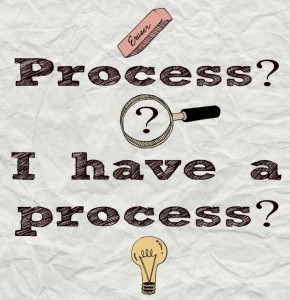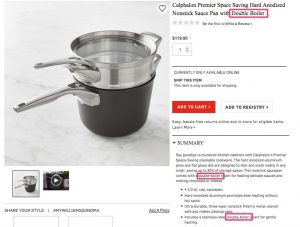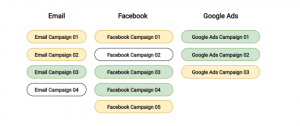As modern marketers, we must look both to the future and to the past to create the most effective strategies for reaching our clients.
In this “Customer Insight” series, we will explore some time-tested, classic methods for getting to know your customer base in meaningful ways. Today’s topic: focus groups.
Let’s take a look at how focus groups have been used in the past, and how they are still applicable to the digital marketing landscape of today.
What is a focus group?
A focus group, according to the Marketing Research Association is:
“…a marketing research technique for qualitative data that involves a small group of people (6-10) that share a common set of characteristics and participate in a discussion of predetermined topics led by a moderator. There are opportunities to conduct focus groups with the use of focus group software.”
One of the most important details highlighted in this definition is that focus groups are considered qualitative research.
In contrast to quantitative research, like surveys, structured interviews and collections of numerical data, qualitative research focuses on collecting information that is subjective, non-numerical and unstructured.
The unstructured-response style of focus groups allows you to gain insight into your target customers’ needs, pain points and opinions. You can gather non-generalized responses to questions that put your target customers’ opinions at the center and allows them to elaborate freely.
Perhaps the most important differentiating aspect of qualitative research is that it explores the how and the why of decision-making and not just the who, what, or when.
Who has used focus groups…and how?
Focus groups have been used since as far back as 1920 and were originally called “focused interviews.”
They were famously utilized during World War II to study the effects of propaganda. They have been used in military settings, sociological studies, psychological studies and urban planning.
They have also been used heavily by those in marketing research.
Focus groups allow companies to gain insight into how their target customer will react to, interact with, and use their product or service.
Many companies choose to assemble focus groups early on in a new product’s development, so they can make any necessary tweaks before the product is rolled out. Other companies will seek help from focus groups in naming a new product. Others might assemble a focus group to get opinions on packaging, or to gauge public opinion on a controversial tagline.
Focus groups can work as a sole source of data regarding a product or in conjunction with surveys or polls. They can also be an important part of a multi-dimensional research bid that encompasses both qualitative and quantitative research methods.
How do you select your focus group’s participants?
The easiest way to assemble focus group participants is by utilizing a local focus group database.
These databases are filled with respondents who have agreed to take part in studies; the database will also offer the demographic, psychographic and cultural criteria you need to assemble the most effective group for your particular product or service.
A second way to assemble a focus group is to cull information from your own company’s database of email respondents and customers. If you have robust software, you’ll already have information on prospects’ geographic location, age, and perhaps even income or profession. Getting these prospects to agree to participate in your study, however, might prove challenging.
A third way to find your participants is to advertise in publications in your target city. Newspapers, both print and online, are viable options.
A fourth way to find participants is to create targeted ads on social media.
How much does it cost?
Depending on the geographical breadth and extent of participation you’re seeking, hosting a focus group can become expensive.
- Because a typical focus group session can last up to two hours, you’ll need to provide some form of compensation for each participant. You may also need to find a professional screener who has experience conducting focus groups.
- There are costs associated with recruiting your participants, paying your screener and securing a facility that has the features you need. Many cities have research centers with rooms created especially for conducting focus groups (one sided glass, desks, multi-purpose kitchens, stationary digital video and audio recording equipment, live streaming capabilities, etc).
According to this marketing research company, the average spend to hold a focus group could be around $ 5,000.
You can also take advantage of free software, like FocusGroupIt, that allows you to conduct fast qualitative research online. You won’t need to book a facility or pay for the time of a screener, making it a great option for smaller companies who don’t have the budget to assemble a traditional focus group.
Wrapping It All Up
As you’ve learned about focus groups, how much they cost and how you can recruit participants, you might’ve been wondering: is it worth it for my company to take this step?
That’s really up to you.
As we look at the emerging statistics on the modern consumer, we can spot a few trends that make focus groups as relevant today as they’ve ever been.
For starters, your target audience doesn’t want to be mass-marketed to. They want messages that feel personalized; they will overwhelmingly support brands who show an in-depth sensitivity to their needs and concerns.
Focus groups are a great way to learn about your customer on his terms. He isn’t restricted to filling in bubbles on a questionnaire or choosing “A,” “B,” or “C” on your online survey. He can speak freely about his pain points and provide his opinion in an unstructured setting.
This type of in-depth, qualitative research is highly valuable to brands in the digital age, perhaps more so than ever before.
Business & Finance Articles on Business 2 Community
(95)
Report Post






